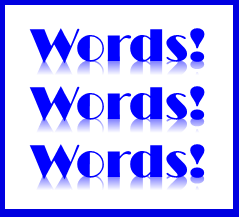 "Casual Fridays" and Ping Pong™ tables in the break room aren't the only relaxed things about businesses these days. Businesses have also become a lot more relaxed in their writing, and formal lines seem to be more blurred now.
"Casual Fridays" and Ping Pong™ tables in the break room aren't the only relaxed things about businesses these days. Businesses have also become a lot more relaxed in their writing, and formal lines seem to be more blurred now.
Below are some examples of how formal lines in business writing have become more blurred, with pros and cons for each.
Do you think these examples reflect the reality of how business writing is becoming less formal than it once was? If so, does it matter? Share your comments in the section at the end of the post.
Business Writing Has Become Less Grammatically Correct
Using conjunctions such as “and” or “but” at the beginning of sentences was once considered a violation by the grammar police. But now it’s common. It was also considered a violation to end a sentence with a preposition or to split infinitives, but boldly breaking those grammar rules is something businesses writers are starting to get used to.
Now, it’s also acceptable for business writers to have paragraphs with only one sentence in them, because they are effective and easier to read while skimming a page.
Acronyms and contractions are also used more frequently. It’s not uncommon to see “SEO” instead of “search engine optimization,” or “you’re” instead of “you are” in a sales memo or report.
Pro: Being less grammatically correct in your business writing will make you seem more like an actual human being and less like a corporate robot.
Con: If you break grammar rules to the point of being unclear (at best) or rude and too lackadaisical (at worst), then your audience will start ignoring or mistrusting anything you write.
Business Writing Is Now More Personalized
Business writers now use personal pronouns to speak directly to their audiences to get them invested in what they’re reading. An audience is more likely to pay attention to a writer’s message when they are addressed with “you.”
And writing “I” or “we” in a business letter is an indication that the writer or company is willing to take responsibility for what’s written in it.
It’s also more common now to mention personal information acquired from data about an audience in a piece of business writing, such as their likes and dislikes or their location.
Pro: Personalized business writing grabs the reader’s attention because you are speaking directly to her about what she cares about, while simultaneously taking responsibility for what you’re writing.
Con: You can come across as unprofessional or biased if you disclose personal information about yourself that’s not relevant or appropriate to your topic. And it can be creepy for the audience if you mention personal details about them that they think you shouldn’t know.
Business Documents Are Now Shorter in Length and More Concise
With advances in technology, society has become "information rich and time poor." With all the written information shared each day, business writers have learned to be more concise and get to the point in a shorter amount of time and space.
Because brevity and relevance are key now, bulleted lists are more popular in business writing, and simple words and phrases are used more often. It’s also common to break down larger and more complex documents into smaller pieces.
Pro: If you keep your business documents shorter, you’ll force yourself to only include information that’s relevant to your audience. And if the document is easier to read, your audience will be more likely to read all of it and share it with others.
Con: It’s harder to maintain a consistent voice and style when you’re writing several shorter pieces instead of one long document. And sometimes you might leave out clarifying details while you’re deleting lines to shorten a text.
Business Writing Now Offers Entertainment
Even when writing reports, business writers can no longer spew off a bunch of statistics or aggressive sales pitches if they want their audience to care about what they’re saying. Writers must entertain, grab attention and engage the emotions of their audience.
To make their writing more entertaining, business writers are now offering stories about their company’s history, culture, or new product line. They bring these stories to life with visual aids and interactive content.
Pro: It’s a good thing when you don’t bore your audience to death with a bunch of flat statistics and numbers. By telling a story and appealing to emotions, you make your audience feel as if they are a part of your business and are empowered to make decisions.
Con: Even though you’re appealing to emotions, you should be careful not to get too emotional yourself, especially if it’s negative or unwarranted. Passion for a product or your company is okay. Passion for hating something is not. And telling stories with visual aids is only beneficial to your writing if it doesn’t distract readers from your message.
****
Increase your vocabulary or just test your knowledge. Click on the graphic below to subscribe to our vocabulary tests.




